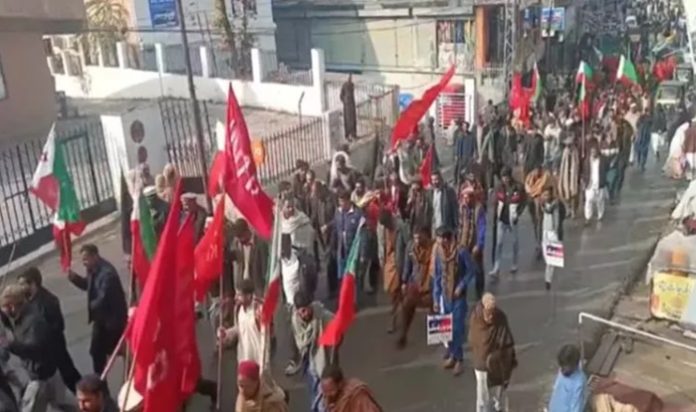Pakistan-occupied Jammu and Kashmir (PoJK) has seen an uptick in violent protests as citizens push back against a controversial ordinance that severely restricts public gatherings. The law, introduced on October 29, mirrors Pakistan’s federal Public Order and Peaceful Assemblies Act 2024 and gives authorities wide powers, including stiff penalties for non-compliance.
The region has been paralyzed by protests, strikes and demonstrations led by the Jammu Kashmir Joint Awami Action Committee (JKJAAC), a coalition of civil society groups. At least 30 people were injured in clashes between police and protesters in Kotli on November 22. Meanwhile, protests in Rawalkot led by groups such as the Jammu Kashmir Liberation Front (JKLF) and the National Students Federation (NSF) resulted in arrests and allegations of police brutality. Videos circulating on social media show tear gas being fired at shops and police allegedly setting vehicles on fire to frame demonstrators.
The PoJK Supreme Court has stayed the implementation of the ordinance, but activists are dubious as they call for its complete repeal. JKJAAC members claim that the law is part of a wider agenda by the Pakistan military establishment to suppress dissent and exploit the region’s natural resources for projects such as the China-Pakistan Economic Corridor (CPEC).
Civil unrest is fueled by rising electricity costs, subsidy cuts and complaints of enforced disappearances. Local leaders warn of escalating protests, including plans to block access to PoJK from neighboring provinces. As tensions rise, experts predict further volatility in the coming weeks.



